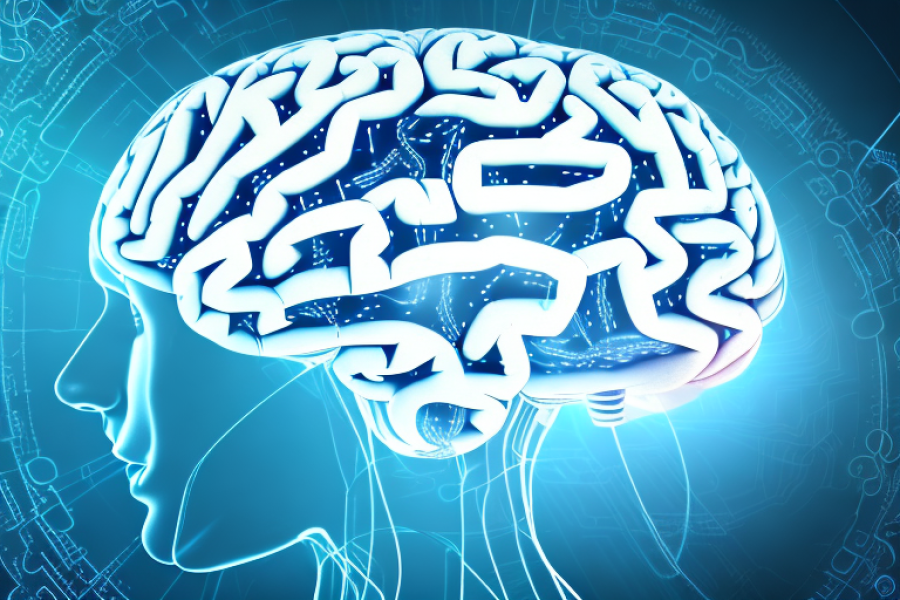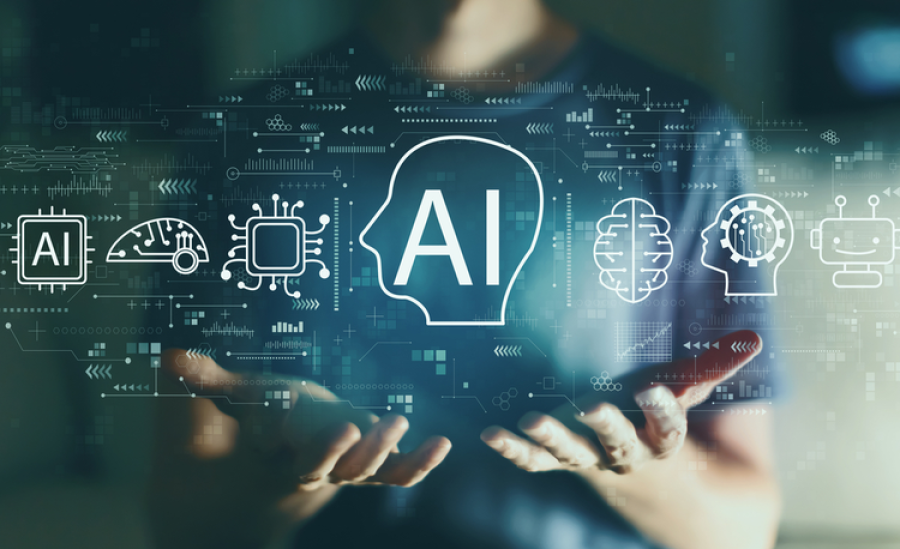The Power of Content AI: Revolutionising the Way We Create and Optimise Content
In today's digital age, where content is king, the demand for high-quality, engaging, and optimized content is at an all-time high. Content creators and marketers are constantly striving to find innovative ways to produce and maximize the impact of their content. Enter Content AI - a game-changing technology that is revolutionizing the way we create and optimize content.
Understanding Content AI
Before we delve into the power of Content AI, let's first define what it entails. Content AI refers to the use of artificial intelligence and machine learning techniques to automate various aspects of content creation and optimization. It combines the power of natural language processing and machine learning algorithms to analyze, interpret, and generate content that resonates with the target audience.
Defining Content AI
Content AI encompasses a range of technologies and methodologies that enable the creation, curation, and optimization of content using AI algorithms. It involves the use of intelligent systems that can understand human language, generate relevant and engaging content, and optimize it for search engines and user experience.
One of the key components of Content AI is natural language processing (NLP). NLP allows machines to understand and interpret human language, enabling them to generate content that is not only grammatically correct but also contextually relevant. By analyzing the structure and meaning of sentences, NLP algorithms can generate coherent and informative paragraphs that resonate with readers.
In addition to NLP, Content AI also leverages machine learning algorithms. These algorithms learn from vast amounts of data, allowing them to identify patterns, preferences, and trends in content consumption. By analyzing user behavior and feedback, machine learning algorithms can generate content that is tailored to specific audiences, increasing engagement and driving conversions.
The Role of AI in Content Creation
AI plays a pivotal role in content creation by assisting human writers in generating high-quality, readable, and engaging content. It can suggest topic ideas, provide research insights, and even help in the actual writing process. With AI-powered tools, content creators can save valuable time and ensure consistency in their content output.
One way AI aids content creators is through topic generation. By analyzing search trends, social media conversations, and user preferences, AI algorithms can suggest relevant and trending topics for content creation. This helps content creators stay up-to-date with the latest trends and ensures that their content remains fresh and engaging.
Furthermore, AI can assist in the research phase of content creation. By analyzing vast amounts of data, AI algorithms can provide content creators with valuable insights and statistics. This enables them to back their content with credible sources and provide accurate information to their audience.
When it comes to the actual writing process, AI-powered tools can provide suggestions and improvements to enhance the quality of content. These tools can analyze the tone, style, and readability of the content, offering suggestions for improvement. This ensures that the final piece of content is not only informative but also engaging and easy to read.
In conclusion, Content AI is a powerful tool that combines the capabilities of artificial intelligence and machine learning to automate various aspects of content creation and optimization. By leveraging NLP and machine learning algorithms, Content AI can generate high-quality, relevant, and engaging content that resonates with the target audience. It assists content creators in saving time, improving consistency, and staying up-to-date with the latest trends in the ever-evolving world of content creation.
The Evolution of Content Creation
Traditional Content Creation
In the past, content creation was a manual and time-consuming process. Writers had to conduct extensive research, brainstorm ideas, and draft articles or blog posts from scratch. This involved spending hours in libraries, poring over books and journals, and interviewing experts to gather information. Writers had to carefully structure their content, ensuring it was engaging, informative, and well-written. They had to pay attention to grammar, punctuation, and style, striving to create a personal touch that resonated with readers.
However, while this approach offered a personal touch, it often lacked efficiency and scalability. Writers could only produce a limited amount of content within a given timeframe. This meant that businesses and individuals had to rely on a small team of writers or outsource their content creation needs, which could be costly and time-consuming.
The Shift to AI-Driven Content Creation
With the advent of Content AI, the content creation landscape has undergone a significant transformation. AI algorithms can now analyze vast amounts of data, identify patterns, and generate content that aligns with user preferences and search engine requirements. This shift towards AI-driven content creation has revolutionized the industry, offering immense potential for businesses to reach wider audiences.
AI-driven content creation has made the process faster and more efficient. Instead of spending hours conducting research, AI algorithms can now analyze data from a variety of sources, including online databases, articles, and social media platforms. They can identify trends, extract relevant information, and generate content that is tailored to specific topics or keywords.
Furthermore, AI-driven content creation has also improved the scalability of content production. With AI algorithms, businesses can generate a large volume of content within a short period. This means that they can consistently produce high-quality content to engage their audience and improve their search engine rankings.
However, while AI-driven content creation offers many benefits, it is important to note that it is not a replacement for human creativity and expertise. AI algorithms can generate content based on patterns and data analysis, but they lack the ability to understand emotions, cultural nuances, and subjective experiences. Human writers bring a unique perspective and storytelling ability that AI algorithms cannot replicate.
In conclusion, the evolution of content creation from traditional manual methods to AI-driven approaches has brought about significant changes in the industry. While AI algorithms have improved efficiency and scalability, human creativity and expertise remain invaluable in creating engaging and impactful content.
The Mechanism of Content AI
Natural Language Processing and AI
In order to comprehend and generate human-like content, Content AI relies heavily on Natural Language Processing (NLP) techniques. NLP allows machines to understand, interpret, and respond to human language, enabling them to generate coherent and contextually relevant content.
Machine Learning in Content Optimization
Machine learning is another core component of Content AI. By analyzing user behaviour, engagement metrics, and search engine algorithms, AI algorithms can optimize content based on the insights gained. This leads to improved search rankings, higher click-through rates, and ultimately, more conversions.
One of the key aspects of Natural Language Processing (NLP) is its ability to process and understand the nuances of human language. This includes analyzing the structure, grammar, and meaning of sentences, as well as identifying entities, sentiments, and relationships between words. By leveraging NLP techniques, Content AI is able to generate content that not only reads well but also resonates with the target audience.
Furthermore, NLP enables Content AI to adapt its language style and tone to match the desired context. Whether it's a formal business article or a casual blog post, the AI algorithms can adjust their writing style accordingly. This flexibility allows Content AI to cater to a wide range of industries and target audiences, ensuring that the generated content is not only relevant but also engaging.
Machine learning plays a crucial role in content optimization. By analyzing vast amounts of data, including user behaviour, engagement metrics, and search engine algorithms, AI algorithms can identify patterns and trends that can be used to optimize content. For example, by analyzing the click-through rates of different headlines, AI algorithms can learn which types of headlines are more likely to attract attention and generate higher click-through rates.
Additionally, machine learning algorithms can analyze user behaviour on a website, such as the time spent on a page, the scroll depth, and the conversion rates. By understanding how users interact with the content, AI algorithms can make data-driven decisions on how to optimize the content for better engagement and conversions. This can include adjusting the layout, formatting, or even the language used in the content to better align with user preferences and expectations.
Moreover, machine learning algorithms can also analyze search engine algorithms to understand how they rank content. By identifying the key factors that influence search rankings, AI algorithms can optimize the content to improve its visibility and organic traffic. This can involve incorporating relevant keywords, improving the meta tags, or even restructuring the content to better match the search intent of the target audience.
In conclusion, the mechanism of Content AI involves a combination of Natural Language Processing and machine learning techniques. By leveraging NLP, Content AI can generate human-like content that is coherent and contextually relevant. Through machine learning, Content AI can optimize the generated content based on user behavior, engagement metrics, and search engine algorithms, leading to improved search rankings, higher click-through rates, and ultimately, more conversions.
Benefits of Using Content AI
Efficiency and Productivity
One of the key advantages of Content AI is its ability to streamline the content creation process. By automating tasks such as topic generation, research, and initial drafting, AI allows writers to focus on higher-level tasks such as creativity and strategy. This improves efficiency, increases productivity, and enables content creators to produce more content in less time.
Quality and Consistency
Content AI also ensures a higher level of quality and consistency in content creation. AI algorithms can analyze existing high-performing content, identify common patterns and structures, and generate content that follows the same guidelines. This results in a consistent brand voice, messaging, and overall content quality.
Challenges and Solutions in Implementing Content AI
Overcoming the Learning Curve
Implementing Content AI can come with its fair share of challenges, especially when it comes to training and familiarizing writers with the new technology. However, with proper training, clear communication, and gradual implementation, these challenges can be overcome. Content creators can adapt to the AI-driven workflow and harness the full potential of Content AI.
Addressing Data Privacy Concerns
Another important consideration when implementing Content AI is data privacy. As AI algorithms rely on data analysis and user behaviour, it's essential to ensure the privacy and security of user data. By implementing robust data protection protocols and obtaining user consent, content creators can address these concerns and build trust with their audience.
In conclusion, Content AI is transforming the way we create and optimize content. By leveraging the power of artificial intelligence and machine learning, content creators can streamline their workflow, improve the quality and consistency of their content, and ultimately drive better results. As technology continues to advance, Content AI will undoubtedly play an increasingly vital role in content creation and optimization strategies.




